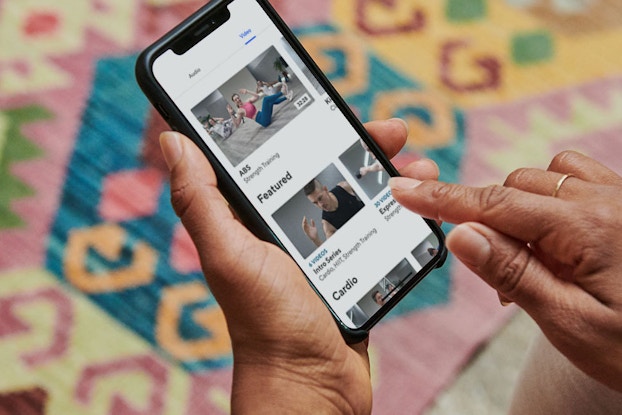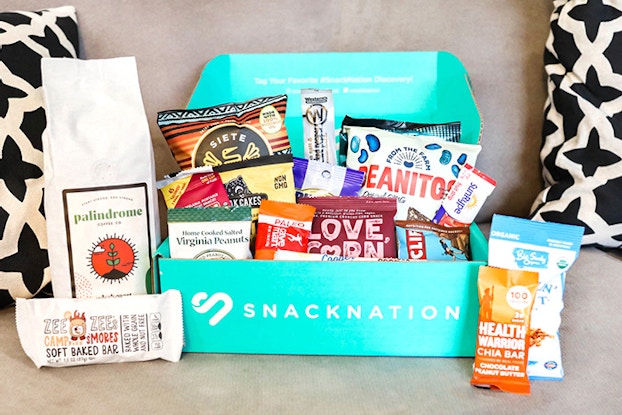
In what might go down in history as the Great Labor Migration of 2020, workers all around the world have relocated from office buildings filled with colleagues to makeshift home workspaces populated with kids, pets and significant others.
The shift has driven a boom for the technological services that working from home requires, such as video conferencing via Zoom, Google Meet and Microsoft Teams, for example.
But other product and service providers are also seeking to leverage this massive societal shift to fuel their own companies’ growth. Many of these providers offer not a technological work solution, but solutions that seek to enhance the emotional and physical well-being of employers’ far-flung workforces.
“In our newly remote culture, companies are looking for ways to engage employees and to help them build new sustainable routines at home,” said Nicole Wolfe, head of corporate programs at ClassPass, an online workout provider that companies have been offering to their remote workers as an added benefit.
ClassPass has partnered with companies large and small to offer digital workouts to more than one million employees globally, she told CO—. In addition to workout plans for individuals, ClassPass has also created livestream workouts for teams, which Wolfe said offers companies a way to foster interaction and camaraderie.
She said she expects that some employees will continue working from home for a prolonged period of time, and for others remote working could become permanent.
“Now is the right time for companies to invest in teams by providing perks and opportunities to stay connected," said Wolfe.
Prior to [COVID-19], fulfilling our mission meant serving member companies in their offices, but the large-scale shift to work-from-home definitely altered that.
Sean Kelly, founder and CEO, SnackNation
Employee wellness
Companies like ClassPass and SnackNation are pivoting their offerings so companies can cater to their remote employees. Read on for more benefits employees are seeking.
Global Workplace Analyticspredicts that 25% to 30% of employees will be working from home on multiple days per week by the end of 2021. That compares with a mere 3.6% of the workforce that worked from home at least half the time before the pandemic.
“Our prediction is that the longer people are required to work at home, the greater the adoption we will see when the dust settles,” the company said in a recent report.
Meanwhile employees themselves said they want to spend about half their time working remotely after the pandemic, according to a survey of 8,000 office workers around the world by The Adecco Group. And 75% said they want flexibility around working from home or office after the pandemic.
Snacks move from office vending machines to ‘work-from-home wellness boxes’
Companies such as SnackNation, which has long delivered healthy snacks and beverages for companies to provide to their in-office employees, have expanded their offerings to include more at-home services during the pandemic.
“Prior to [COVID-19], fulfilling our mission meant serving member companies in their offices, but the large-scale shift to work-from-home definitely altered that,” said Sean Kelly, founder and CEO of SnackNation.

To meet the new demand, the company this spring launched two new products: Work-From-Home Wellness Boxes and Snacks + Essentials Boxes (featuring safety items like masks and hand sanitizer). Within the first few months of launching the new products, SnackNation shipped more than 100,000 boxes directly to workers’ homes, which Kelly said has “more than made up for” a decline in the company’s in-office offering.
“As an organization, we have had to quickly adjust to the changing circumstances, but the experience has demonstrated just how agile and resilient our team can be, and has undoubtedly made us stronger,” Kelly told CO—.
He said the pandemic only accelerated a remote-working trend that SnackNation had already been planning for. The company simply advanced the timeline for the launch of its Work-From-Home Wellness Box, which is specially curated for remote teams and can be sent directly to employees’ homes.
“Work was already trending in the direction of work-from-anywhere, but [COVID-19] obviously significantly sped this up,” said Kelly. “We’ve seen our remote offering resonate with companies with strong cultures who want to continue to support their teams and demonstrate care during what has been a major disruption for so many industries.”
One of SnackNation’s customers — it refers to them as “members” — said the boxes it has sent to its remote employees have been an important element of its employee-care efforts during the pandemic, citing in particular the masks and hand sanitizer that are included in the deliveries.
“The COVID supply [masks, hand sanitizer, etc.] packages are critical to our WFH/WFO staff,” said James Dodson, executive vice president of interpretation at United Language Group, based in San Antonio.
He said those employees who work from home are required to come into the office occasionally, and the SnackNation deliveries have been helpful in getting masks to those workers.

Kelly of SnackNation said one of the challenges his company faced in transitioning to home delivery of corporate-sponsored snack boxes was the added complexity of shipping. Instead of sending large orders to one or two addresses, it is now shipping dozens, or even hundreds, of smaller orders to individual residences.
To solve for this, the company’s tech team added new features the the SnackNation app, Kelly explained.
“Now SnackNation members just send out a link via the app, and it automatically collects the right information to make the program successful,” he said.
Caring for workers’ mental and emotional well-being has also been top of mind for many employers. The Adecco Group survey found that 28% of workers’ mental health deteriorated during the pandemic.
That’s provided growth opportunities for service providers in the mental health space as well.
Catering to anxious, sleep-deprived workers
In early April, in response to the COVID-19 pandemic, Big Health, a provider of what it describes as digital therapeutics for anxiety and sleep problems, unveiled a new program that enables companies and their employees to access its Sleepioand Daylight services for free. Big Health counts Boston Medical Center and AmeriGas among the more than 50 employers that have signed up for the program.
“We entered 2020 having doubled our revenues in 2019,” said Peter Hames, Big Health co-founder and chief executive officer, in a statement describing $39 million in Series B financing the company raised in June. “That’s because customers such as Target, Comcast and The Home Depot recognize that our digital therapeutics can fill a growing gap in their portfolio of mental health benefits.”
Big Health declined further comment about the impact of the pandemic on its business.
CO—is committed to helping you start, run and grow your small business. Learn more about the benefits of small business membership in the U.S. Chamber of Commerce, here.








